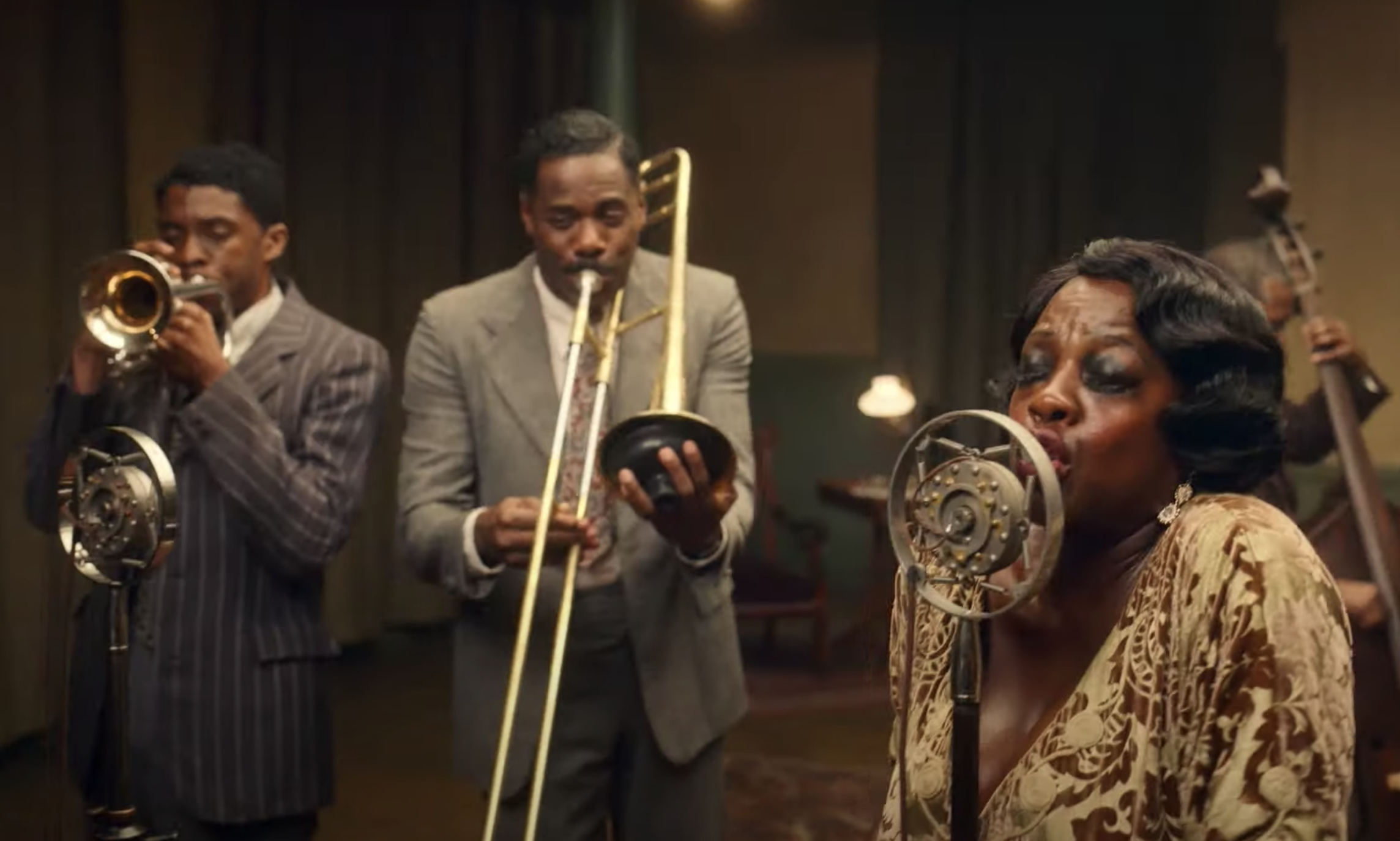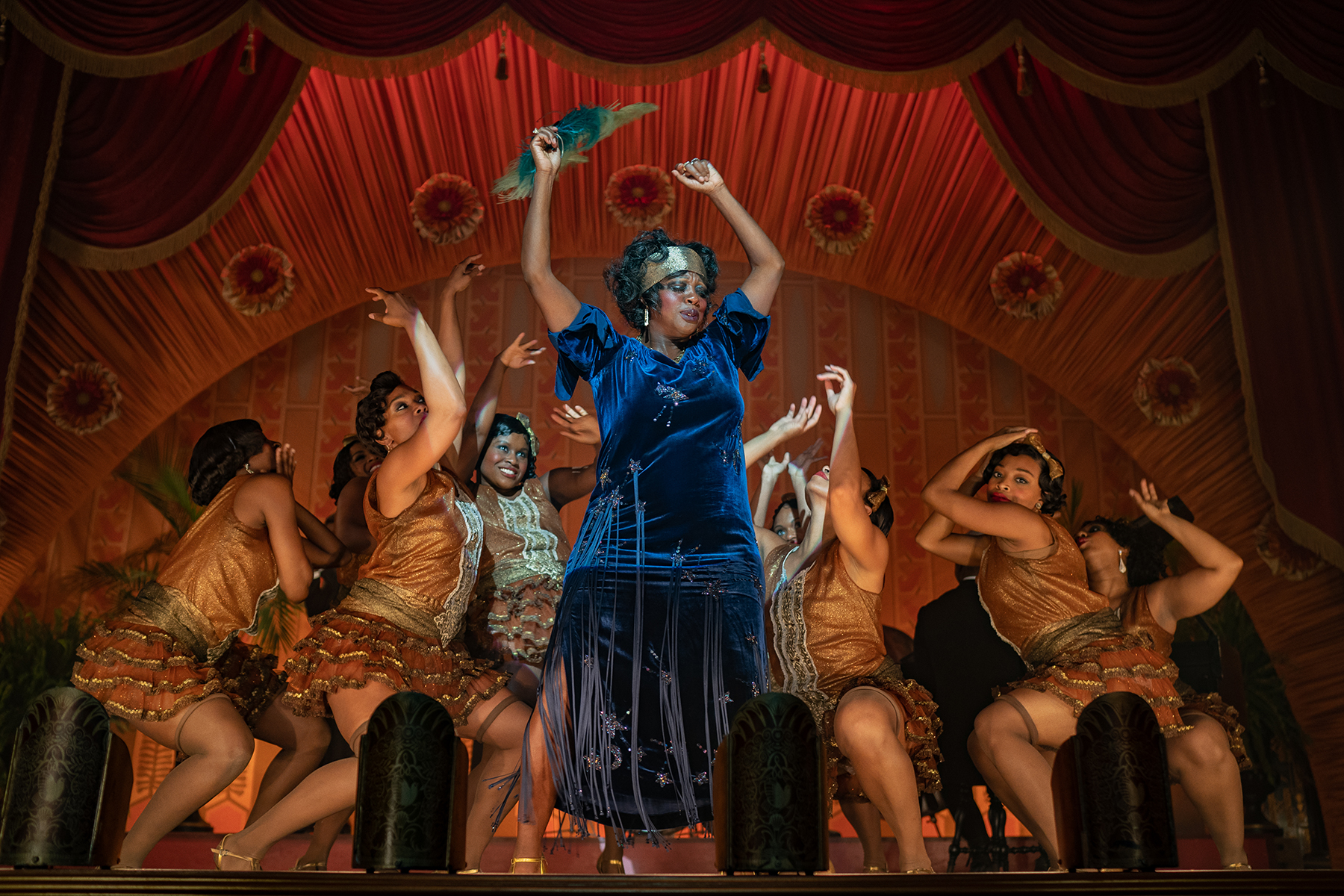To explore the racism and other tensions of the 1920s over the course of just one afternoon is no small feat. But ‘Ma Rainey’s Black Bottom’ does just that, and it does it oh so well. The story focuses on Ma Rainey, the very formidable and unrelenting “Mother of the Blues,” who shows up late for a recording session. Her band, however, has arrived on time. As they wait in the rehearsal room, playful banter makes way for hard-hitting truths and a poignant climax. We ascertained the veracity of the plot so that you don’t have to, and here’s what we found!
Is Ma Rainey’s Black Bottom Based on a True Story?
No, ‘Ma Rainey’s Black Bottom’ is not based on a true story. While the protagonist is based on the very real African-American blues singer Gertrude “Ma” Rainey, the script itself was not inspired by actual events. In fact, the movie is an adaptation of the eponymous play by August Wilson. It is one of the ten plays he wrote as part of the Century Cycle and is the only one that is set outside of Pittsburgh, in Chicago. With each of these productions, Wilson aimed to highlight the experiences of the black community over the century.

Viola Davis, who stars as the blues singer, said this about the legendary playwright and the story – “I think that he captures our humor as Black people. He captures our humor, our vulnerability, our tragedies, our trauma. And he humanizes us. And he allows us to talk.” The story unfolds over one fateful afternoon in Chicago. The (very fictional) band has arrived on the scene and discusses everything from the price of shoes to Ma’s fame.
But soon, the conversation takes a darker turn, and we learn more about the many challenges and indignations that African-Americans had to face then. One character reveals that his mother was raped by a group of white men when he was just 8, whereas another man talks about how a black reverend was assaulted by members of the white community. But what really ties the entire discussion together is Ma’s “couldn’t care less” attitude, especially when it comes to white folks. Each of these narratives showcases the ongoing plight of the African-American people, but from a supremely different lens.
The real Ma was an astounding figure. Influenced by vaudeville, minstrel, and cabaret, she had been performing on the stage since her teenage years. However, Ma was then introduced to the blues, and she went on to become one of the earliest and most prominent singers of the genre. After touring with Rabbit Foot Minstrels, she formed her own group with her husband, William “Pa” Rainey. It was called Rainey and Rainey, Assassinators of the Blues.
In 1923, Ma signed a contract with Paramount Records and recorded 100 songs over the next five years. Her “moaning” style of singing and charismatic stage presence were well known to all. She toured with the likes of Thomas Dorsey and Louis Armstrong and even recorded numbers with the Georgia Jazz Band. Some of her more prominent work includes “Bad Luck Blues,” “Jelly Bean Blues,” “Prove It on Me,” and “Moonshine Blues.” In 1924, she began performing with Thomas Dorsey and his band, the Wildcats Jazz Band, until 1928.
In the film, Ma is seen as this shrewd and empowered woman. She doesn’t care about the opinions of others and is, in fact, rather unaccommodating in her own behavior. As the story progresses, Ma is at odds with her manager, Irvin, and the producer, Sturdyvant. She understands that she is just a cash cow for the white men and that they only see their next paychecks in her. However, it is pertinent to note that these observations help her stay afloat in the music industry as well. She understands her success and leverages it to do as she pleases. She is not a diva simply because she wants to throw tantrums.
Ma is actively trying to avoid her career’s downfall. After all, it comes as no surprise that black artists at the time were thoroughly exploited, despite being famous and successful. Talking about her character, Davis said, “In ‘Ma Rainey,’ everybody’s fighting for their value, and the thing that holds us back is being Black. I wanted to show that. No — ‘show that’ is not a good term for an actor. I wanted that to be a part of Ma Rainey. I wanted people to see what lay in the heart of her being. Which is: I know my worth.” After all, Ma was always unapologetically herself.
Even when it came to her personal life, Ma was quite vocal about her bisexuality. Although she was married for some time, many of her songs include lyrics about her fluid sexual orientation. Reports also suggest that she was involved in a romantic relationship with fellow artist, Bessie Smith. So, to call Ma a pioneer would not be wrong. She definitely was ahead of her time. Although her career fizzled out when her style of music became less popular, her contributions to the genre have not been forgotten. These strong and compelling traits are also seen in Davis’ character on screen.

However, juxtaposed with her is the equally stubborn but mostly naïve Levee, who is the trumpeter. He wants to become a prominent musician in his own right and even panders to the white music producer. In an era rife with racial oppression, his failure is almost imminent. The various challenges that Levee faces are also explored in the movie, but we don’t want to spoil it for you entirely. All we can say is that the film is courageous, ambitious, and riveting, just like its protagonists. The cherry on top of the cake is that this fictional story efficiently makes use of facts to relay the realities of the time.
Read More: Ma Rainey’s Black Bottom Ending, Explained


You must be logged in to post a comment.